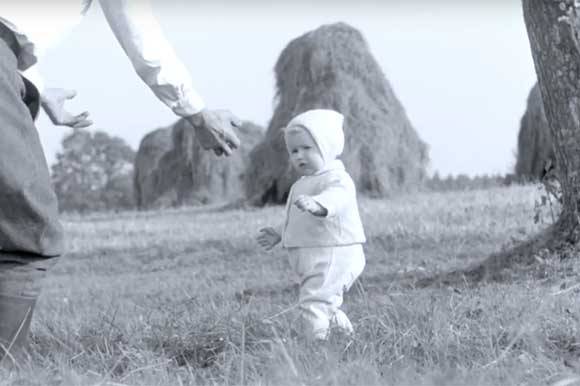The documentary Bridges of Time / Laiko tiltai directed by Audrius Stonys together with the Latvian director Kristīne Briede, a coproduction between VFS Films, Studio Nominum and Vesilind), has received worldwide recognition at international festivals, winning the Best Documentary Film Award at the Shanghai IFF.
Bridges of Time was also chosen as Lithuania‘s entry for an Oscar nomination in two categories: Best International Feature Film and Best Documentary Feature. Lithuania selected a documentary film for a second year in a row.
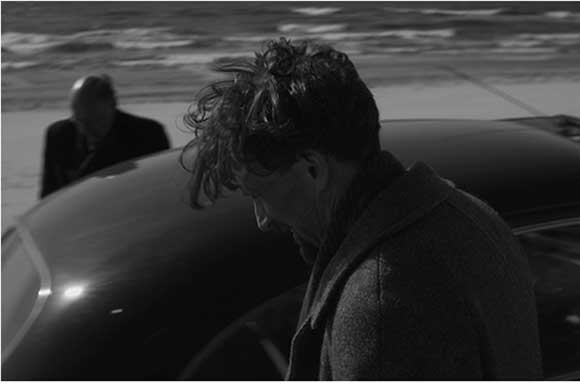 After a 17-year break, Lithuanian feature films returned to the Venice Film Festival, where the hybrid genre film Parthenon directed by Mantas Kvedaravičius and produced by Studio Uljana Kim, competed in the Film Critics’ Week, while Ukrainian Sergei Loznitsa’s documentary State Funeral a Lithuanian minority coproduction, was screened Out of Competition.
After a 17-year break, Lithuanian feature films returned to the Venice Film Festival, where the hybrid genre film Parthenon directed by Mantas Kvedaravičius and produced by Studio Uljana Kim, competed in the Film Critics’ Week, while Ukrainian Sergei Loznitsa’s documentary State Funeral a Lithuanian minority coproduction, was screened Out of Competition.
The short film Community Gardens / Kolektyviniai sodai directed by Vytautas Katkus became the first Lithuanian film to be included in Cannes Critics‘ Week and included among the first eight titles announced by the European Film Academy as candidates for the 2020 European Film Awards.
It was an exceptional year in terms of releases of films by first time directors, including Karolis Kaupinis (Nova Lituania), Tomas Vengris (Motherland / Gimtinė), Jurgis Matulevičius (Isaac), as well as releases of films made by established directors including Sharunas Bartas (In The Dusk / Sutemose), Algimantas Puipa (Other Side of Silence / Kita tylos pusė) and Raimundas Banionis (The Purple Mist / Purpurinis rūkas).
In 2019 Lithuania successfully increased its film tax incentives to 30% for a five-year period. The tax incentives, a welcoming approach by the government and a big talent pool make Vilnius an attractive filming destination. Serving as filming location for the HBO miniseries Chernobyl boosted tourism in Lithuania. In 2018 alone, the city was visited by more than 1.2 m tourists, a 12% increase compared to 2017.
In the autumn of 2019 Vilnius hosted film crews working on 10 film projects at the same time, including a Netflix original production, the series Young Wallander.
Sadly, the Lithuanian-born director Jonas Mekas, one of the most important figures in the history of experimental film, passed away in 2019.
PRODUCTION
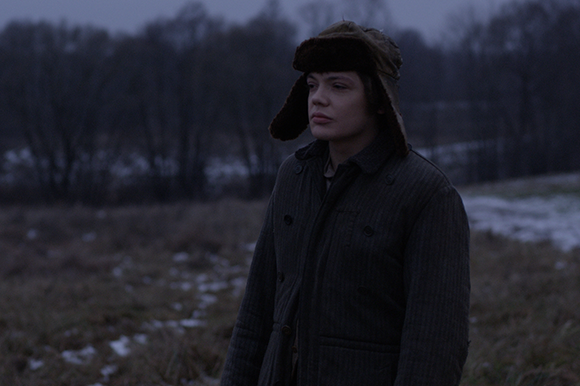 One of the most prominent Lithuanian film directors, Sharunas Bartas, finished his historical dramaIn The Dusk / Sutemose in 2019. The film focuses on the Lithuanian partisan war, which took place after WWII, and it was produced by Šarūnas Bartas and Jurga Dikčiuvienė through Lithuania‘s Studio Kinema in coproduction with France‘s Kino Elektron, Serbia‘s Biberche Productions, Latvia‘s Mistrus Media, Sirena Film from the Czech Republic and Portugal‘s Terratreme Filmes.
One of the most prominent Lithuanian film directors, Sharunas Bartas, finished his historical dramaIn The Dusk / Sutemose in 2019. The film focuses on the Lithuanian partisan war, which took place after WWII, and it was produced by Šarūnas Bartas and Jurga Dikčiuvienė through Lithuania‘s Studio Kinema in coproduction with France‘s Kino Elektron, Serbia‘s Biberche Productions, Latvia‘s Mistrus Media, Sirena Film from the Czech Republic and Portugal‘s Terratreme Filmes.
Andrius Blaževičius shot his second feature film Paralysis / Paralyžius, produced by M-Films.
Jurgis Matulevičius finished his historical psychological drama Isaac, produced by Lithuanian Film Jam and coproduced by Ukraine’s Esse House and Poland‘s Takfilm. The film participated in the Tallinn Black Nights FF.
International productions were attracted to Lithuania by the tax incentive scheme launched in 2014. In 2019 the Lithuanian Film Centre issued 98 Investment Certificates representing a total amount of 6,834,286 EUR financial aid for filmmaking in Lithuania. A total of 36 films used the scheme: eight foreign films, eight coproductions and 20 domestic films. Total production expenses in Lithuania were 22,909,399 EUR.
The list of international productions which used the newly increased 30% tax incentive scheme in 2019 includes: the BBC series The Rise of the Nazis directed by Julian Jones and serviced by Virtus Mediae; the Norwegian political series Occupied directed by Erik Skjoldbjærg, produced by the Norwegian Broadcasting Corporation, and serviced by Ahil; the spy thriller series Hamilton directed by Erik Leijonborg, produced by the Swedish companies DramaCorp and Kärnfilm, and serviced by Dansu; Young Wallander, a new Netflix original series directed by Ole Endresen and Jens Jonsson, produced by Yellow Bird UK and serviced by Ahil.
Eight international projects, eight coproductions and 20 national film projects benefited from the 30% tax incentive in 2019.
DISTRIBUTION
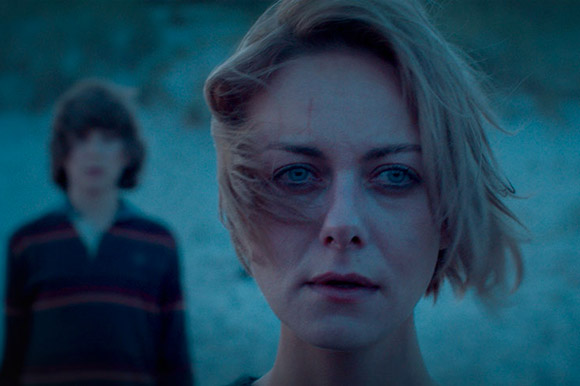 A total of 23 new Lithuanian films (two more than in 2018) were released in 2019, including Algimantas Puipa‘s new drama Other Side of Silence / Kita tylos pusė, produced by Studio Uljana Kim, Tomas Vengris’ debut feature Motherland / Gimtinė, coproduced by Lithuania‘s Studio Uljana Kim, Latvia‘s Locomotive Productions, Germany‘s Heimat Hafen Films and Greece‘s Faliro House; Raimundas Banionis‘ The Purple Mist / Purpurinis rūkas produced by Lithuania’s Studija 2 in collaboration with the Lithuanian National Radio and Television; Marija’s Kavtaradzė’s Summer Survivors / Išgyventi vasarą produced by Lithuania’s M-films, and Ernestas Jankauskas‘ Sasha Was Here / Čia buvo Saša produced by Dansu.
A total of 23 new Lithuanian films (two more than in 2018) were released in 2019, including Algimantas Puipa‘s new drama Other Side of Silence / Kita tylos pusė, produced by Studio Uljana Kim, Tomas Vengris’ debut feature Motherland / Gimtinė, coproduced by Lithuania‘s Studio Uljana Kim, Latvia‘s Locomotive Productions, Germany‘s Heimat Hafen Films and Greece‘s Faliro House; Raimundas Banionis‘ The Purple Mist / Purpurinis rūkas produced by Lithuania’s Studija 2 in collaboration with the Lithuanian National Radio and Television; Marija’s Kavtaradzė’s Summer Survivors / Išgyventi vasarą produced by Lithuania’s M-films, and Ernestas Jankauskas‘ Sasha Was Here / Čia buvo Saša produced by Dansu.
Lithuanian films had a tremendous year in festivals. After a 17-year break, Lithuanian feature films returned to the Venice Film Festival, where the hybrid genre film Parthenon, directed by Mantas Kvedaravičius and produced by Studio Uljana Kim, competed in the Film Critics’ Week, while Ukrainian Sergei Loznitsa’s documentary State Funeral, a Lithuanian minority coproduction, was screened Out of Competition.
State Funeral is a coproduction between Atoms&Void (the Netherlands) and Studio Uljana Kim (Lithuania), supported by the Lithuanian Film Centre and Current Time TV (USA). The team of the film included Lithuanian editor Danielius Kokanauskis, the sound editor Vladimir Golovnitsk, who lives and works in Lithuania, while the video footage was restored by the Lithuanian Jonas Zagorskas.
In 2019 the Karlovy Vary FF had a large Lithuanian presence: in the competition programme, the jury, and at the industry event Work in Progress. Karolis Kaupinis's debut feature Nova Lituania produced by M-films, which premiered at the Karlovy Vary IFF, was awarded the Golden Athena Award at the Athens FF and Best Fiction Film Award at the Riga IFF.
Other Side of Silence directed by Algimantas Puipa premiered at the Scandinavian International Film Festival SCIFF, where it won Best International Feature Film and Best Actor awards.
Tomas Vengris’s debut feature Motherland / Gimtinė, which had its world-premiere in Busan‘s Flash Forward section, won the award for Best Baltic Feature Film at the Tallinn Black Nights FF.
Lithuania became the centre of attention at the BEAST International Film Festival, which brough Eastern European and Baltic cinema to Porto, Portugal. Special attention was paid to the godfather of the avantgarde film, Jonas Mekas, as his retrospective was screened at the festival.
Slovenia’s International Animation Festival Animateka in Ljubljana dedicated a programme to Baltic animation for the first time and selected 10 Lithuanian animated films from the last 30 years.
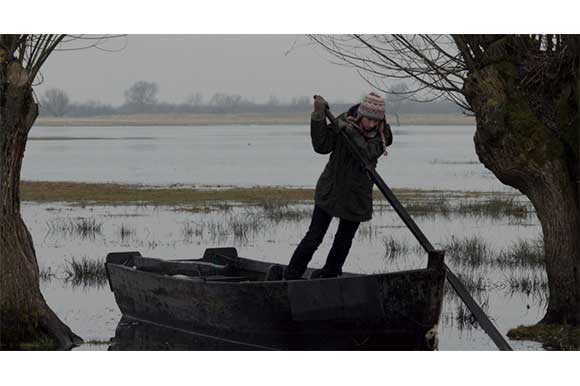 Nordic Film Days Lübeck screened six Lithuanian films of various genres, united by the desire for freedom.
Nordic Film Days Lübeck screened six Lithuanian films of various genres, united by the desire for freedom.
Lithuania was one of the four countries under the spotlight of the 11th Les Arcs FF. Ignas Jonynas's feature Invisible / Nematoma, produced by Lithuania’s Revoliucijos idėja in coproduction with Ukraine’s Limelite and Latvia’s Locomotive Productions, participated in the New Directors Competition.
The Oulu International Children’s and Youth FF (Finland) paid special attention to Lithuanian classics as Justinas Krisiūnas’s film Hearts / Širdys, produced by Dublis production, was screened in the Youth Competition programme, while the Lithuanian/Latvian/Czech coproduction Bile directed by Ināra Kolmane and produced by Latvian Devini, competed in the Children’s Films Competition.
A Lithuanian Cinema Week ran at the Cinemateket in Copenhagen within the annual New York Baltic Film Festival, and Litauisches Kino Goes Berlin, which was dedicated exclusively to Lithuanian cinema, screened 50 feature films, documentaries and short films, including two recently restored classics.
Works of documentary filmmakers continued their successful journeys across global film events: Aistė Žegulytė‘s first long documentary Animus Animalis (a Story about People, Animals and Things) / Animus Animalis (istorija apie žmones, žvėris ir daiktus) produced by Meno Avilys received the Grand Prix at the Brussels IFF, as well as a Special Prize at the Riga IFF, and it was screened at the Hot Docs Documentary Film Festival, Canada, the Thessaloniki IFF and Wroclaw FF, and also in Israel, Belarus and Mexico.
Two Lithuanian films: Exemplary Behaviour / Pavyzdingas elgesys, a documentary by Audrius Mickevičius and Nerijus Mileris, and One Life / Vienas gyvenimas, a short film by Marija Stonytė, had their world premieres at the DOK Leipzig. Exemplary Behaviour, which was coproduced by Lithuanian Era Film, Bulgarian AGITPROP and Slovenian CASABLANCA, in association with Stefilm (Italy), won the Golden Dove as well as the FIPRESCI Award the and the Ecumenical Jury Award.
Portugal’s documentary festival Porto/Post/Doc paid special attention to Lithuanian documentary filmmaker Audrius Stonys. The festival screened his retrospective and other Lithuanian films that influenced his work.
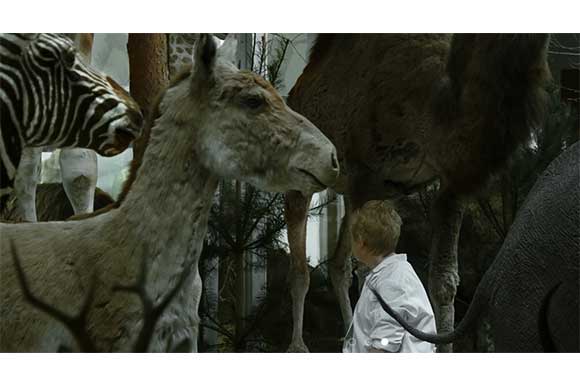 Lithuanian short films were also included in the programmes of international festivals. Community Gardens / Kolektyviniai sodai directed by Vytautas Katkus, produced by Viktoria Films, became the first Lithuanian film to be included in Cannes Critics‘ Week, while Jonas Trukanas‘ feature film When the Lights Go Out / Užgęsus šviesoms (Dansu) had its world premiere in the competitive programme of the Brussels International Fantastic FF.
Lithuanian short films were also included in the programmes of international festivals. Community Gardens / Kolektyviniai sodai directed by Vytautas Katkus, produced by Viktoria Films, became the first Lithuanian film to be included in Cannes Critics‘ Week, while Jonas Trukanas‘ feature film When the Lights Go Out / Užgęsus šviesoms (Dansu) had its world premiere in the competitive programme of the Brussels International Fantastic FF.
As Lithuanian films are gaining more and more recognition at international film festivals, the Lithuanian film heritage is also being screened in various programmes. With 139 screenings across Lithuania and 41 screenings at international film festivals as well as restoration of historically significant films, 2019 marked an important re-emergence for the Lithuanian film classics.
The restored copy of the first colour Lithuanian film March! March! Tra-ta-ta! / Marš! Marš! Tra-ta-ta! (1964) directed by Raimondas Vabalas and produced by the Lithuanian Film Studio, had its world premiere at the National Gallery of Art in Washington on 3 November 2019. The film was restored especially for this occasion.
ACME Film, which was established in 1999 and is still the largest film distributor in the Baltics, distributes films from Sony Pictures, Warner Bros., Lionsgate/Summit Entertainment and numerous other independent producers. The company distributes the films theatrically, on DVD, VOD and on TV.
In 2019, ACME Film distributed the Lithuanian feature films And all Their Man / Ir visi jų vyrai by Donatas Ulvydas and Motherland by Tomas Vengris, as well as Donatas Ulvydas’ documentary The State Secret / Valstybės paslaptis, on the former Lithuanian president Dalia Gybauskaitė.
Garsų Pasaulio Irašai (GPI) is the largest video distribution company in the Baltics, being also the exclusive distributor of Sony Pictures HE in the Baltics. In 2019 GPI distributed commercial and art house films, and also domestic films such as The Purple Mist by Raimundas Banionis, Other Side of Silence by Algimantas Puipa, Parthenon directed by Mantas Kvedaravičius and produced by Studio Uljana Kim.
EXHIBITION AND BOX OFFICE
There are 79 screens in Lithuania, which is still too small a number, according to the Film Center, in order to provide access to films in smaller cities and given the total number of productions released.
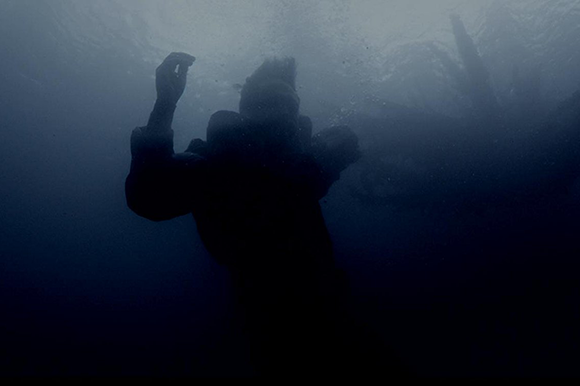 The pan-Scandinavian Forum Cinemas, owner of the largest chain of film theatres in the country (76% of the market share), has six multiplexes with 40 screens, all fully digitalised since 2012. In 2016, Forum Cinemas joined the NCG group, which became a part of the global AMC/Odeon organisation belonging to the Wanda Group since 2017.
The pan-Scandinavian Forum Cinemas, owner of the largest chain of film theatres in the country (76% of the market share), has six multiplexes with 40 screens, all fully digitalised since 2012. In 2016, Forum Cinemas joined the NCG group, which became a part of the global AMC/Odeon organisation belonging to the Wanda Group since 2017.
The Polish-owned multiplex Multikino, which opened in Vilnius in 2010, has seven screens with 1,673 seats. Baltic Multiplex Ventures, which is the owner of the Cinamon multiplex in Kaunas, invested 1.6 m EUR in its five screening rooms with over 1,000 seats.
Kino Pasaka, which was founded in 2009 as an art house film theatre in Vilnius, is still the only private art house cinema in Lithuania.
A total of 379 films were screened in Lithuanian cinemas in 2019, compared to 351 in 2018, with 4,110,531 admissions through 31 December 2019, compared to 4,265,414 admissions in 2018.
National production accounted for 19.64% of the whole market (27.9% in 2018), while European films represented a market share of 15.77% (11.8% in 2018) and US production – 60.88% (58.7% in 2018).
The productivity of national filmmakers remained stable as 52 new films of various lengths and genres were made (17 feature films and 16 documentaries) in 2019.
The total number of admissions was 4 m with the total gross reaching 22.5 m EUR.
The average ticket price slightly increased from 5.26 in 2018 to 5.45 EUR.
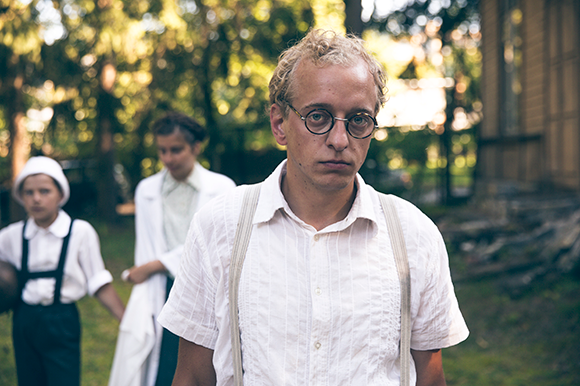 The most profitable Lithuanian film at the national box office in 2019 was the comedy Fake Millionaire / Pats sau milijonierius directed by Tadas Vidmantas and produced and distributed by Stambus Planas. The film was released on 18 October 2019 and had more than 204,860 admissions and 1,259,262 EUR gross through 2019.
The most profitable Lithuanian film at the national box office in 2019 was the comedy Fake Millionaire / Pats sau milijonierius directed by Tadas Vidmantas and produced and distributed by Stambus Planas. The film was released on 18 October 2019 and had more than 204,860 admissions and 1,259,262 EUR gross through 2019.
Vidmantas’s previous films include Lithuania’s most successful comedy Three Million Euros / Trys milijonai eurų, produced by Vabalo filmai, which earned 1,541,883.00 EUR in 2017.
The romantic comedy And all Their Man / Ir visi jų vyrai directed by Donatas Ulvydas and produced by Ulvyds, ranked 2nd with over 121,123 admissions and 690,896 EUR gross. The film was released by Acme Film on 25 January 2019.
In 2019 Ulvydas also released the documentary Valstybės paslaptis about the former Lithuanian president Dalia Grybauskaitė. With 40,040 admissions and 214,476 EUR gross, the film distributed by Acme Film became the most popular documentary in Lithuania in 2019.
Ramūnas Rudokas’s criminal drama The Condemned. Kaunas Novel / Pasmerkti. Kauno romanas is 3rd at the domestic box offfice with 88,763 admissions and 508 889 EUR gross. The film produced by Singing Fish is based on a true story and it was released by Singing fish on 22 November 2019.
The year 2019 was also successful for art house filmmakers. Raimundas Banionis’s drama The Purple Fog / Purpurinis rūkas, produced by Lithuania’s Studija 2, had 33,038 admissions and 159,978 EUR gross. The film was distributed by Garsų Pasaulio Įrašai.
Marija Kavtaradze’s debut feature Summer Survivors / Išgyventi vasarą, produced by Lithuania’s M-Films and distributed by Kino Pavasaris Distribution, had 26,328 admissions and 139,510 EUR gross.
Ernestas Jankauskas’ Sasha Was Here / Čia buvo Saša, produced by Dansu and distributed by Dansu films, had 22,413 admissions and 120,454 EUR gross.
GRANTS AND NEW LEGISLATION
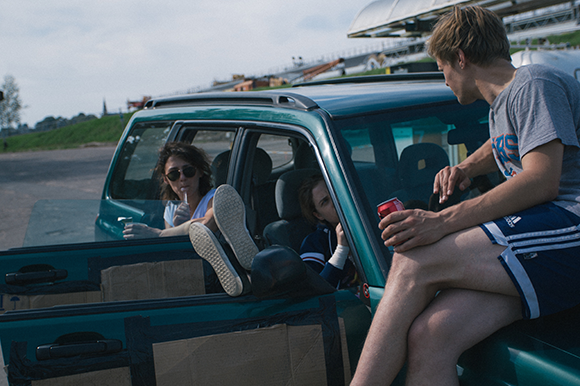 The annual state support provided by the Lithuanian Film Centre for the film industry was 5.24 m EUR in 2019, of which 4,822,649 EUR were spent.
The annual state support provided by the Lithuanian Film Centre for the film industry was 5.24 m EUR in 2019, of which 4,822,649 EUR were spent.
The Lithuanian audiovisual industry relies on funds from the Lithuanian Film Centre, private funds, coproducing with foreign companies and pan-European film support initiatives such as the MEDIA Programme and Eurimages.
The Lithuanian Film Centre was launched in 2012 and it is headed by Rolandas Kvietkauskas. It was set up after an extensive lobbying by the Independent Producers Association of Lithuania and the Lithuanian Filmmakers Union. It has had a huge impact on the local industry, which previously lacked a central body to represent it. The Lithuanian Film Centre primarily finances film development, production, promotion and distribution in Lithuania.
In 2018 the Lithuanian parliament approved a boost to the country’s film production tax incentive, increasing it from 20% to 30%. The new level took effect on 1 January 2019 and the legislation was renewed for a next five-year period.
The updated tax incentive is available for fiction films, TV films, documentaries and animated films. At least 80% of eligible film production costs must be incurred in Lithuania and the total amount of eligible spend in Lithuania has to be no less than 43,000 EUR. The incentives scheme is administered by the Lithuanian Film Centre.
In recent years the country‘s profile rose with high-profile and big-budget dramas. Lithuania has hosted numerous major international productions, including HBO‘s miniseries Chernobyl directed by Johan Renck, BBC‘s War and Peace directed by Tom Harper, Netflix’s Tokyo Trial directed by Rob W. King and Pieter Verhoeff, and many more.
During the first four years, until 2018, Lithuania received 24.4 m EUR worth of investment from foreign film producers. A total of 68 filmmakers used the tax incentive and 23 international projects benefited from the scheme.
The Vilnius Film Office was established at the end of 2011. A public non-profit entity, the Kaunas Film Office was established in 2012 as a result of joint efforts between the Kaunas municipality and the Kaunas Cinema Studio. The Vilnius Film Office and the 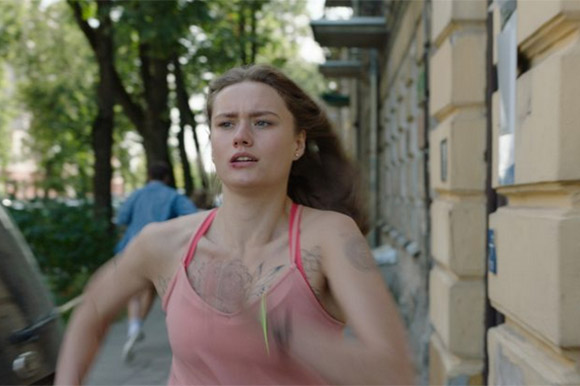 Kaunas Film Office are members of the European Film Commissions Network.
Kaunas Film Office are members of the European Film Commissions Network.
The seaport Klaipėda, located on the Baltic Sea coast in Western Lithuania, as well its region, offer a wide range of filming locations. More at: www.klaipeda-locations.com.
TV
Lithuania’s public broadcaster, the Lithuanian National Radio and Television (LRT), operates three national television channels, three radio channels and an internet portal. It also provides satellite and live internet broadcasts, radio and television podcasts.
Since 1 January 2015, the Act amending the Law on the Lithuanian National Radio and Television came into force. This act bans commercial advertising on all LRT radio and TV channels, but provides more sustainable funding from the state budget. The assigned funding is based on the state budget revenues from the income tax and the excise revenues received in two previous years. Its operations are overseen by the LRT Council. LRT joined the European Broadcasting Union (EBU) in 1993. LRT provides assistance to foreign broadcasting companies covering events in Lithuania.
TV3 is a television channel owned by Modern Times Group (MTG, Sweden) and targeted at Lithuanian-speaking audience. It was launched in April 1993 as Tele-3, before becoming TV3 in June 1997. Now TV3 is the biggest commercial TV channel in Lithuania and brings entertainment for the whole family, offering locally produced shows, well-known international formats and the most popular sports events.
The TV6 channel was launched in 2002. It focuses on entertainment and high-profile sports events – the UEFA Champions league, comedy, horror, action films and exclusive content shows. TV6 is a Lithuanian terrestrial, satellite and cable television channel owned by the Nordic television company Viasat.
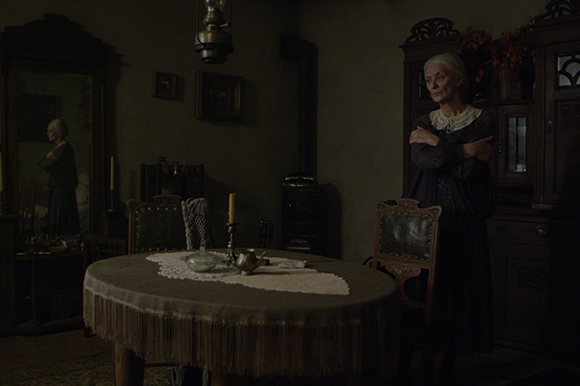 The TV8 channel, launched in 2011, is dedicated to women who want to enjoy their leisure time. It broadcasts cooking and lifestyle shows, fashion and female talk shows, romantic films and series as well as positive animation for children.
The TV8 channel, launched in 2011, is dedicated to women who want to enjoy their leisure time. It broadcasts cooking and lifestyle shows, fashion and female talk shows, romantic films and series as well as positive animation for children.
LNK TV, also known as Laisvas ir Nepriklausomas Kanalas (Free and Independent Channel), is one of the major commercial TV channels in Lithuania. It was founded in 1995 as part of MG Baltic Media. It has four sister channels: TV1, Info TV, Liuks! and BTV.
Lietuvos rytas TV is a Lithuanian entertainment channel founded in 2008 and airing approximately 55% international programmes.
In 2019 TV3 aired the 12th season of the most popular Lithuanian TV series Women Lie Better / Moterys meluoja geriau directed by Mykolas Vildžiūnas and Andrius Žiurauskas, and produced by Videometra. Women Lie Better is the most popular Lithuanian drama of all time and it is based on a novel by Daiva Vaitkevičiūtė. The series follows four young women and their love interests.
Also in 2019 LNK TV aired the second season of the criminal drama series Serious Deal / Rimti reikalai directed by Džiugas Siaurusaitis, produced by Urbs TV.
CONTACTS:
LITHUANIAN FILM CENTRE
Zigmanto Sierakausko g. 15, LT-03105 Vilnius
Phone: +370 5 213 0547, Fax: +370 5 213 0753
Director Rolandas Kvietkauskas
This email address is being protected from spambots. You need JavaScript enabled to view it.
VILNIUS FILM OFFICE
Director: Jūratė Pazikaitė
Konstitucijos pr. 3-313
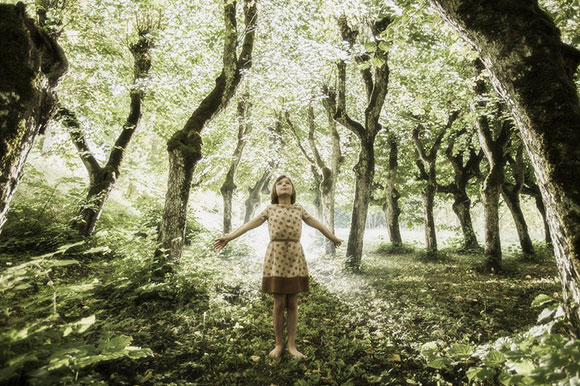 Vilnius, LT-09601
Vilnius, LT-09601
Phone: 85 211 2620, Mobile:. 8 614 04 696
This email address is being protected from spambots. You need JavaScript enabled to view it.
This email address is being protected from spambots. You need JavaScript enabled to view it.
www.filmvilnius.com
KAUNAS FILM OFFICE
Darius Baltušis
Laisves av. 54, Kaunas, 44246
Phone: +37069837732
This email address is being protected from spambots. You need JavaScript enabled to view it.
www.kaunasfilmoffice.eu
KLAIPĖDA LOCATIONS
Anelija Juškevičiūtė
Phone: +370 687 16001
This email address is being protected from spambots. You need JavaScript enabled to view it.
Report by Auksė Kancerevičiūtė (2020)
Source: the Lithuanian Film Centre

